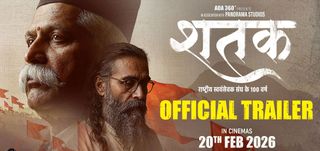
Aarakshan Movie Review
First things first. Is "Aarakshan" pro or anti reservation? The intricacies of this cleverly-written film do not allow us the luxury of arriving at any definitive conclusion on the matter. For or against job reservation ceases to be the core issue in "Aarakshan" after a point. The film is fully pro-education, that's for sure.
What we come away with in this deftly told story of socio-political exploitation is a protagonist who is so stubbornly idealistic he could only be played by a super-hero.
Super-heroes need not wear underwears over their trousers, nor their hearts on their sleeves. It could be a maths teacher who enjoys educating successive generations without thinking of promotions and perks.
The educationist in Prakash Jha's film, as played with supreme magnetism by Mr Bachchan, is a man of all seasons. What he does with unnerving effectuality is to tell us that our educational system is fatally flawed. And it's just not enough to talk about it.
When Dr Prabhakar Anand senses he can no longer fight the corrupt educational system from the inside, he moves out, starts educating girl children from a tabela owned by a benign peasant (Yashpal Sharma, a regular in Prakash Jha's cinema and in splendid form here).
The portions where we see Prabhakar Anand's awakening as a grassroot educationist is so closely aligned to Amitabh Bachchan's image of the actor of the masses that you feel the idealism of the educationist somewhere noiselessly mingles with the actor's ability to slip into super-hero's roles without flying physically.
This film levitates Mr Bachchan in far more subtle ways. He plays a man with the gumption to say no to a system of education that progressively favours purchased merit. Spearheading the educational racket in "Aarakshan" is Manoj Bajpayee playing his coaching-institute wheelerdealer part with over-the-top gusto.
Towards the end when all hell breaks loose, and Bajpayee's character is seen pounding with his fists a steamroller meant to mow down Dr Prabhakar Anand's idyllic educational spot, a character whispers, "He has lost his mind."
Well, precisely. There is much in Prakash Jha's kingdom that is rotten. The characters on the negative side of the educational fence are uni-dimensional and sport expressions accordingly.
To lift the tale from the discernible blemishes (spotless Nehru jackets for the principal character in every sequence, over-pancaked women playing supporting roles, too much attention to getting the commercial language like the mandatory songs, right) there are the high point all of which gather momentum in the second-half when the film tells us with punctuated passion, that something can be done to change Indian mindsets that encourage educational malpractices, that grasroot education is the only feasible remedy to the corrosion of the entire educational system.
The sequences showing Prabhakar Anand teaching maths in a tabela with ample support from his daughter (Deepika Padukone), and two students from different social stratas (Saif Ali Khan and Prateik) convey the warmth of an idealism that we lost in our cinema since the days of Hrishikesh Mukherjee's "Satyakam".
The narration moves forward entirely through the voices of the male actors who are largely a part of a very confused educational system in a country where marks on report cards determine an individual's career.
Merit is the main issue in this meritorious film. The performances range from the loud to the lyrical, depending on whether the camera moves away from Mr Bachchan or stays close to him. He brings to the part of the conscientious and immovable educationist a kind of emphatic idealism that would look highly inappropriate in any other actor. With his imposing presence Mr Bachchan never lets the character's high ethics down.
Among the other actors Saif Ali Khan scores very highly in sincerity, subtlety and sheer screen presence. Playing a Dalit boy who still irons his own clothes (a bit overdone, the drama of the damned) Saif moves through the motions of social protest and individual outrage with stealth and conviction.
In fact the one deep flaw in the film is that the relationship between the characters played by Mr Bachchan and Saif of the deeply-committed benefactor and the indebted but conflicted protege, is not given ample room to grow in Anjum Rajabali's flawed but brilliant script.
But then there is so much that you carry away from the film that the flaws fade away from consideration. What we are left with is a film that tackles a sensitive and topical issue with confidence and vigour, not allowing us the luxury to love the heroes or hate the villains. Though an easy and fluent grace is often found to be missing in the narration, the principal issue remains education. And that's never secondary.
OTHER REVIEWS



















